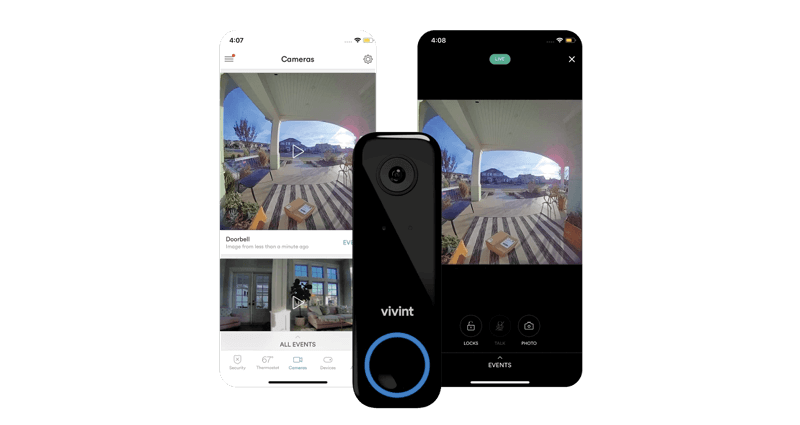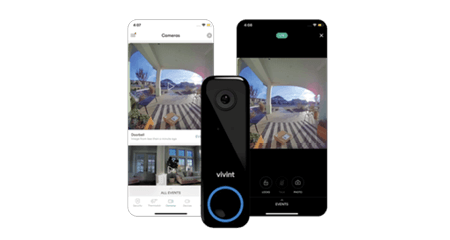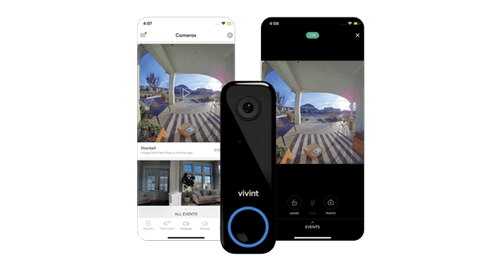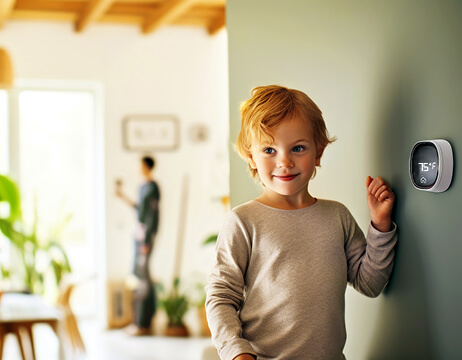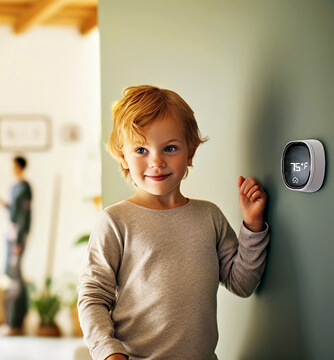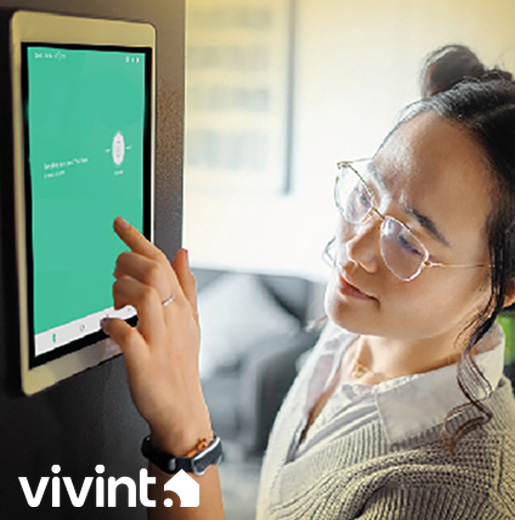Transitioning to a smarter home can improve your control over every aspect of how your house operates and increase its safety and accessibility. Additionally, you can reap the benefits of a more efficient home, which can lead to savings in your energy and upkeep costs. The best part? You can customize your smart home to suit your needs and preferences. Whether you want to control your home's lighting, temperature or security, smart home technology allows you to do it all with just a few taps on your phone.
Control at your fingertips
With the installation of smart appliances in your home, such as a smart refrigerator, you gain the power to control your home's functions from anywhere in the world using your mobile device. Did you forget to turn off the lights before leaving? No need to worry. Is the air conditioner still running while you're on vacation? Easily turn it off in seconds using the accompanying app. This level of convenience puts you in control of your home, no matter where you are.
There’s apps and devices to control home stereos, water usage, lighting, lawn care, garage doors, your dog's food dish and even grocery shopping. Best of all, everything is easily and readily controlled by your smartphone. But it's not just about control. Smart home technology can also enhance the aesthetics of your home. For instance, smart lighting can create different moods and atmospheres with just a few taps on your phone.
Smart home safety
Smart homes don't just allow us to prevent accidental house fires from unattended ovens. Doors can be locked, security systems armed, and cameras monitored from your phone, creating a safer and more secure environment for you and your family. However, it's important to note that with any technology, there are potential risks. Homeowners can install security systems that monitor guests' comings and goings and alert them when suspicious activity is detected. But it's crucial to ensure that these systems are secure and not vulnerable to hacking.
If you have young children or you're caring for aging parents, these tools can make your life more manageable and give you peace of mind. Alerts can be sent to your phone when family members leave your house, and you can even keep track of where they go after they leave. We're proud to collaborate with industry leaders like Vivint to provide whole-home solutions that include all-in-one home security and advanced automation. Learn more about creating a safer and smarter home.
Accessibility
Suppose you have aging or disabled friends or family members. In that case, you know how difficult even the most basic everyday tasks can be for them. Smart home technology can greatly increase their quality of life. For instance, voice commands can make the learning curve much easier for someone unfamiliar with computers. Setting up automated systems for activities like watering the lawn removes unnecessary stress from the lives of these individuals. As the technology moves forward, more and more difficult tasks will become accessible, improving flexibility and independence in housing for people who might not be fully capable of taking care of their homes on their own.
Energy efficiency
While many benefits of a smart home include ease and accessibility, there are even more perks to enjoy. Smart home technology allows appliances to work with the least amount of energy needed. For example, an induction cooktop stove can now heat exclusively when a metal pan is placed on top of it. No more burners running uncovered, and no more pans being overheated. Stovetops can even manage a perfect boil using the least amount of energy possible.
It's never been easier to use water more efficiently. Certain faucet technologies can maximize shower water usage by shaping the individual water droplets to create a more fulfilling shower experience while using less water than the everyday showerhead.
Cost-effectiveness
If the environmental benefits of smart home technology don't convince you, the potential financial savings will. According to the U.S. Department of Energy, you can save as much as 10% annually on heating and cooling by turning your thermostat down 7°-10°F for 8 hours a day from its standard setting. These savings can add up significantly over time. By investing in smart home technology, you're not just saving money but making a wise financial decision.
The chance to save money with smart home technologies is simple. Timers and monitors ensure you only use the money and energy you want, and occupation detectors can ensure these products are only active when users are present.
To further your potential savings, adding solar power can save costs and help you become more self-sufficient. But it's not just about the financial benefits. Smart home technology can also help to reduce your environmental impact. By using energy more efficiently, you can reduce your carbon footprint and contribute to a more sustainable future.
Not only can these improvements help you save on your bill payments, but each addition of these technologies increases the resale value of your home. It may be a higher upfront cost, but these additions soon pay for themselves.
The future of smart home technology
While some technologies are only in early development, new innovations are emerging every day. Some elements of a smart home may require significant investment with long-term rewards. However, the potential for future developments in smart home technology is vast. Imagine a home that can anticipate your needs and adjust its settings accordingly. Making small changes to your home's functionality can help you embrace the larger ones to come and enjoy the potential savings that add up.

